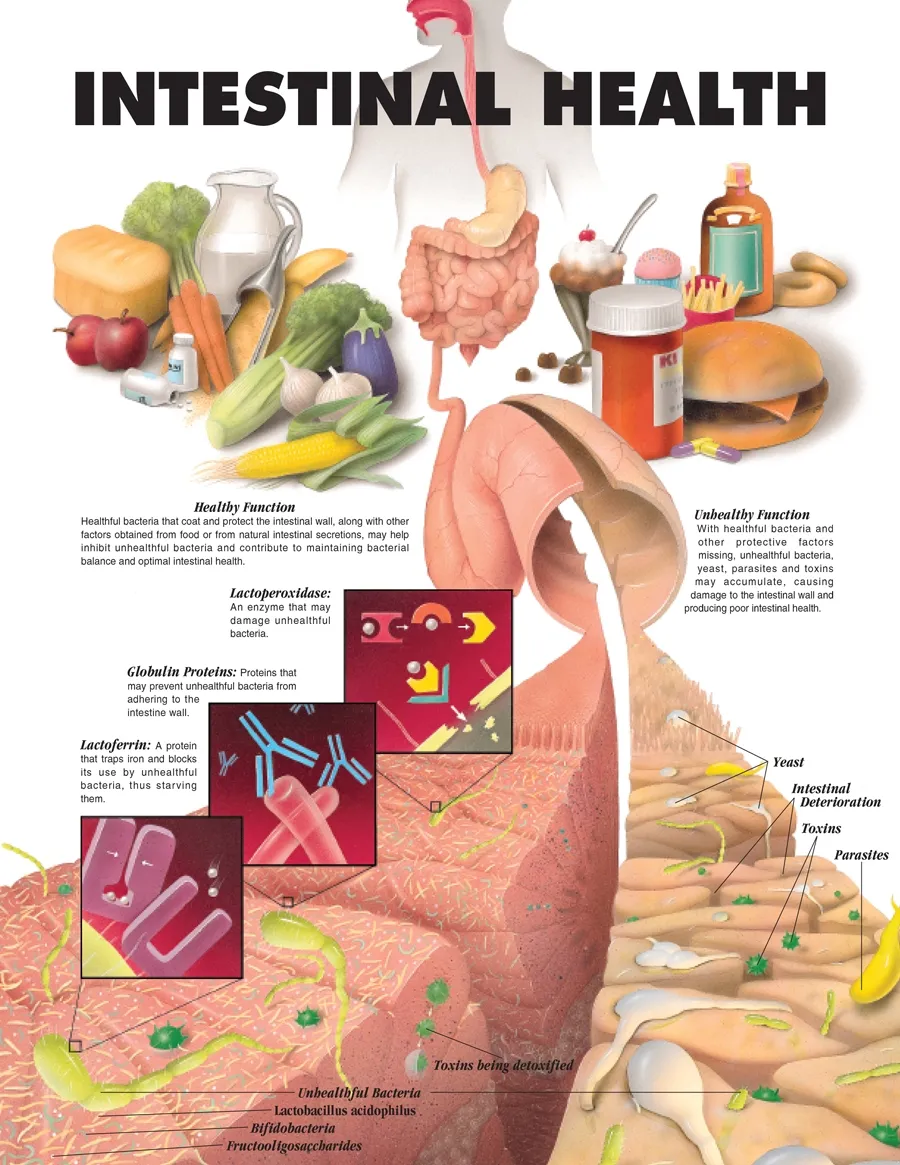Nutrition is one of the most important factors affecting intestinal composition and metabolism. Factors such as distribution percentages of carbohydrates, fat and proteins, which are the amount of nutrition, style, macro nutrients, the passing times of food from the intestine and the pH values are the factor.
The effects of food groups on intestinal health are different. To look at the effects of different food groups separately;
Fibers
Fibers can improve the microbiota profile by changing the intestinal environment and positively affecting the development of useful microorganisms. Prebiotic fibers improve the useful bacterial profile in the column by stimulating the development of probiotics such as lactobacilli, bifidobacteria. It is known that it has positive effects on human health by regulating intestinal homeostasis thanks to the short -chain fatty acids produced by the intestinal microbiota and providing optimum immune function. These improvements in intestinal microbiotas play an active role in many health problems such as irritable bowel syndrome, obesity, cardiovascular health.
A fiber-rich diet may have a protective and therapeutic effect against constipation, so 20-30 grams of fiber consumption and adequate fluid intake is recommended.
However, fibers are not used as therapeutic in any case. Fermentiable fibers such as oisocakaritis and inulin may increase the symptoms of irritable bowel syndrome, so low fodmap diet, ie fermented fibers, may need to be used.
Unlike IBS, fiber consumption should not be restricted in inflammatory bowel disease.
To summarize briefly, accepted nutrition guides suggest that fiber consumption should be at least 20 grams per day for a healthy intestine.
OIL
Diets containing high -fat and high amounts of saturated fat may have negative effects on the intestinal microbiota and cause an unhealthy metabolic condition.
In addition, high Mufa diets may adversely affect the intestinal microbiota, while PUFA has no adversely affect the intestinal microbiota or metabolic health results.
PROTEIN
Protein metabolism is closely associated with intestinal microbiota. Proteins taken by diet are metabolized by proteins, proteases and peptidases secreted from the small intestine, and the resulting amino acids can be used by bacteria in the intestine for protein synthesis.
Unigurated protein and amino acids are mainly fermented to various bacterial metabolites such as hydrogen sulfide and ammonia.
The protein type, concentration and amino acid balance in the diet can affect the composition of intestinal microbiota. It contributes from the right sources and sufficient protein consumption by supporting intestinal microbiota to intestinal health and immune system.
CARBOHYDRATE
Complex carbohydrates are fermented by microorganisms in the large intestine and positively affect the development of healthy microorganisms by supporting microbiota composition and metabolic activities as well as being used as an energy source.

Comments